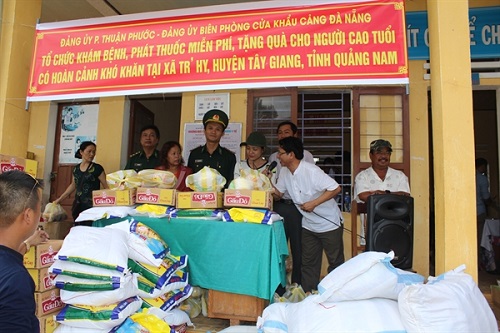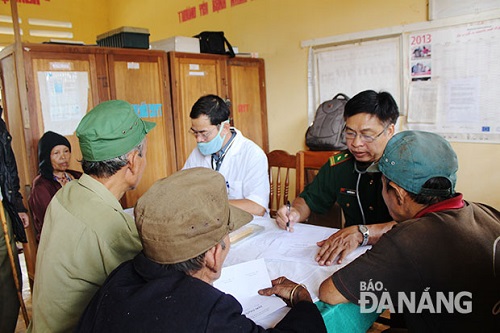Meaningful charitable activities in Tr'Hy Border Commune
Tr’Hy Border Commune is one of the 10 poorest localities in Quang Nam Province’s Tay Giang Mountainous District. Over recent years, many epidemics relating to digestion, respiration, malaria, and osteoarticular have been recorded in the commune. The main reasons have been attributed to the difficult living conditions of local residents, the harsh weather, and especially the unsafe local drinking water sources.
In addition, a number of the local residents are now living in small villages quite far from district or commune-level medical centres. Therefore, they find it very difficult to go to these centres for their medical examinations and treatment.
In an attempt to help the commune’s residents, a group of 10 doctors and nurses from the Da Nang Border Guard High Command, the city’s Port Border Guards and the local Red Cross Association recently gave free medical check-ups and medicines to over 100 poor families in the commune.
During their 2-day stay in the commune, over 200 gifts of essential commodities, valued at 250,000 VND each, were given to local social policy beneficiaries and poor families. In addition, 100 other gifts were presented to pupils from Tr’Hy Primary School.
The Deputy Political Commissar of the municipal Border Guard High Command, Colonel Nguyen Hai, said that over recent years the city’s border guard officers and men have taken part in numerous charitable activities in mountainous communes in the city’s Hoa Vang District, and the border communes on the western side of Quang Nam Province. The total expenditure for these activities has been over 200 million VND and this has been raised from the city’s border guard officers and men plus local businesses and other generous donors.
In addition, the city’s border guard officers and men have helped poor families in this commune to build new houses and repair their downgraded ones.
 |
| Preparing gifts for the poor residents … |
 |
| … and examining poor patients |